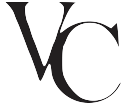Hormones During Menopause and Varicose Veins
Both physiologic and hormonal changes experienced during pregnancy increase the risk for varicose veins in women. Higher levels of progesterone and estrogen have a relaxing and thinning effect on the walls of the veins. In addition, higher abdominal pressure and higher blood volumes during pregnancy are also contributing factors leading to varicose veins. The other end of life’s spectrum, menopause, also has its effects on vein health. Whether you are approaching or are in this stage of life, there are some important things you need to know about managing and preventing varicose veins.
Hormonal Balance is a Major Player in Vein Health
Research shows that both estrogen and progesterone have beneficial effects on vein wall support. This phenomenon also occurs in men as both sexes have combinations of both masculine and feminine hormones in the body. The main difference between men and women are the amounts. Estrogen is also needed to make the male hormone, testosterone.
Hormonal balance in women occurs during childbearing years in a non-pregnant state. If increases in estrogen and progesterone weaken the blood vessels by thinning vein walls, then the sharp decreases in both hormones during menopause will have the opposite effect, excessive thickening and constricting of venous walls.
Decrease Hormone Levels in Menopause also Increase the Risk of Varicose Veins.
Hormonal fluctuations in pre-menopause, peri-menopause, and menopause can occur over many years. The rise and subsequent drop of estrogen and progesterone during these phases can create thickened and less flexible vein walls. The effects also occur along valves directing flow back to the heart. Thickened areas along these valves will prevent them from closing, allowing blood to flow freely in both directions. Blood will also pool in areas surrounding the valves, contributing to their swollen and knot-like appearance. The thickened vein walls create narrowed pathways for returning blood, causing congestion and further swelling.
What Actions can I take to Prevent and Lessen Their Appearance During Menopause?
Like pregnancy, varicose veins experienced during the transition to menopause in women, commonly fade. Most times, they are not painful, and their presence is mostly cosmetic. For some women, however, there are associated symptoms, such as pain, heaviness, skin problems, and blood clots. Women experiencing these symptoms should consult with their physician and vein specialist regarding hormone replacement therapy.
Unless other conditions are present, that prevent its use, HRT can be continued during treatment for varicose veins. Patients who are at higher risks for blood clots because of genetic or lifestyle factors may need to discuss other forms or treatment with their physician or specialist. Otherwise, adopting a healthy low-impact cardiac exercise program, which uses the lower body and leg muscles, will assist circulation and improve the condition. Other actions to take include frequent standing breaks during sedentary work and avoiding instances where long-term standing is necessary.
Your primary care doctor or vein specialist can help you determine which treatments give the best results for your individual case. Be sure to discuss options regarding HRT and venous procedures with your vein specialist during your consultation.



